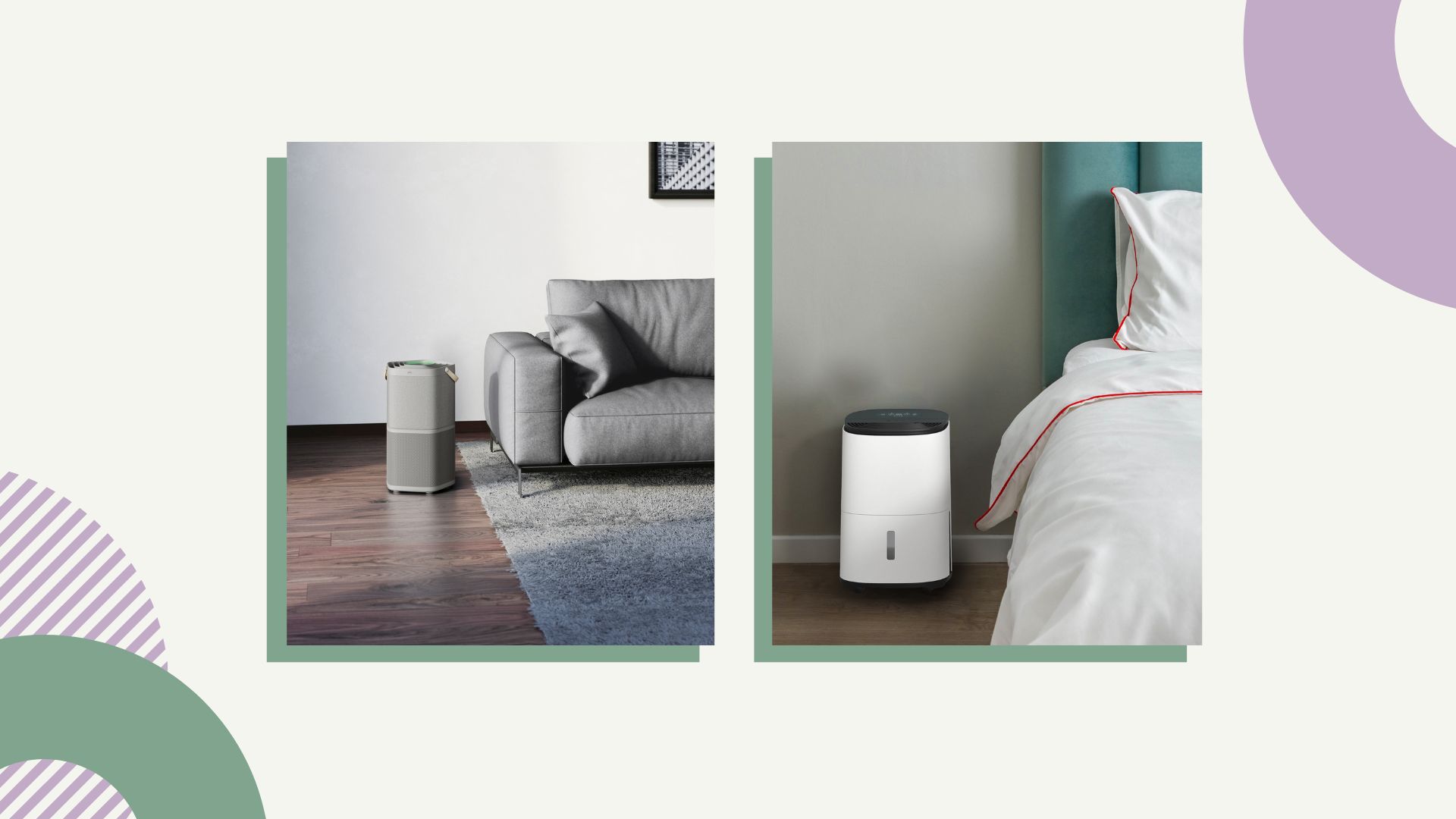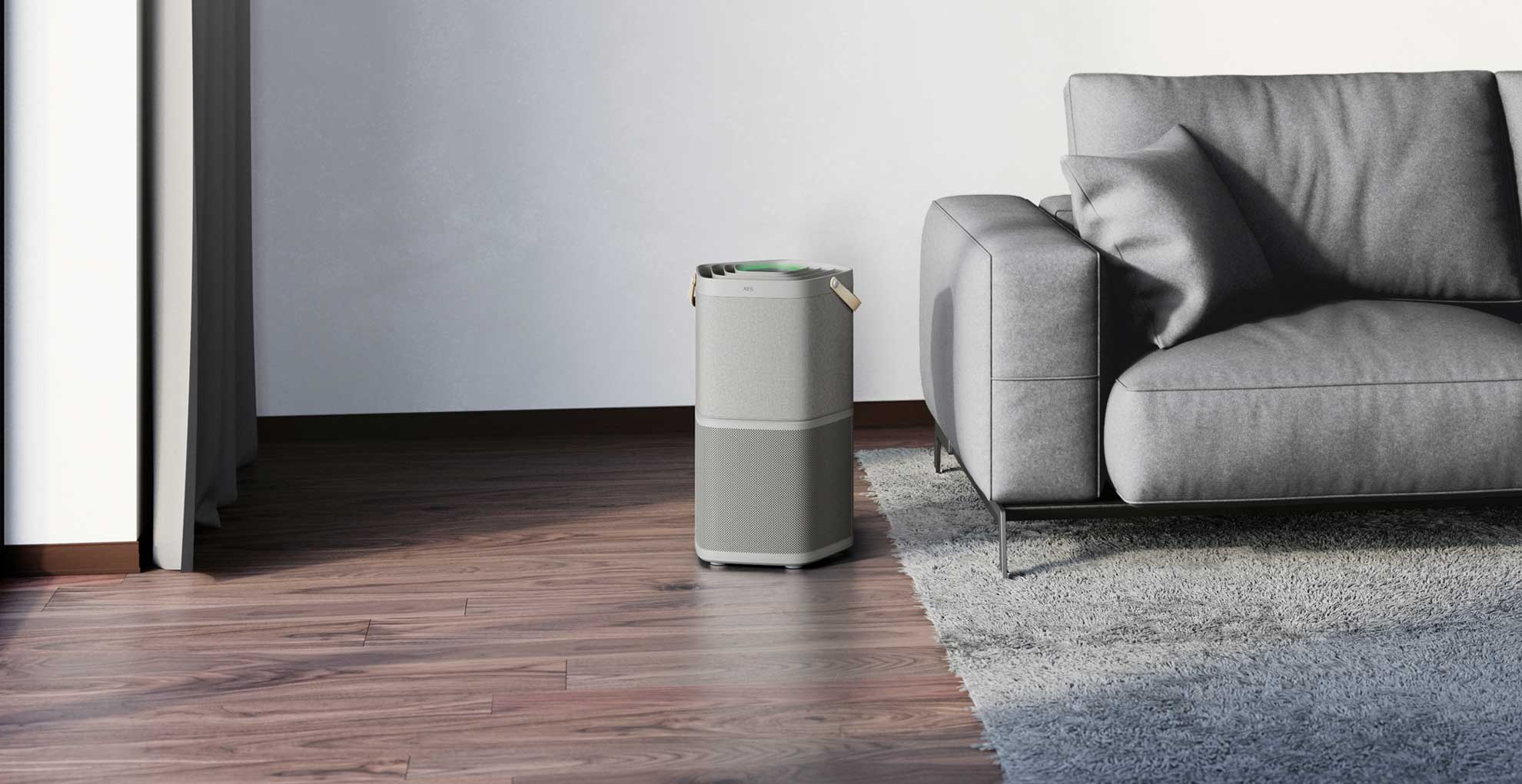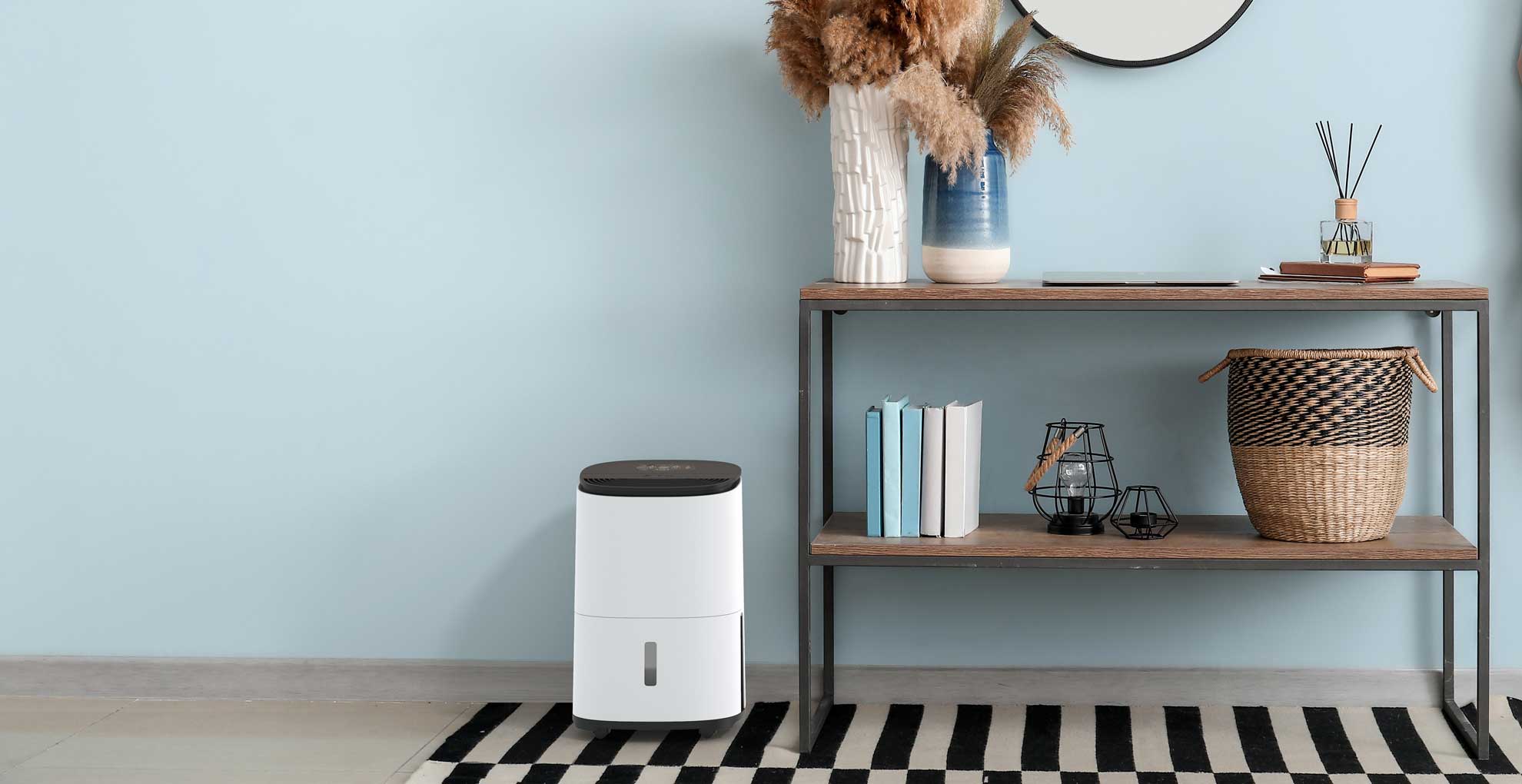Air purifiers vs dehumidifiers – which is best for your needs?
Both can improve the air quality in your home, but in different ways – so which should you choose?

Tamara Kelly
No matter how frequently and how thoroughly we clean our homes, microscopic dust particles, pollen, and other allergens, moisture, and mold can still be present.
While this is totally normal, it can make our lives uncomfortable at times, especially for those who suffer from allergies or respiratory issues.
The good news is we can make the problem much better by investing in the best air purifier or best dehumidifier. But how do you know which is right for your needs?
To explore air purifiers vs dehumidifiers we’ll look at: what each product does, what they’re best for in terms of improving air quality in the home, plus the pros and cons of both, so you can choose the device that’s right for you.
What do air purifiers and dehumidifiers do?
Air purifiers and dehumidifiers are similar in that they remove the nasties that swirl around the air in our homes, but how they do it differs, so the two are not interchangeable.
“Air purifiers and dehumidifiers can each have a unique role in improving the air quality in your home, " explains Iain Wareham, head of product line, care & wellbeing, at AEG. "Air purifiers clean the air, as opposed to dehumidifiers that pull moisture from the air."

How does an air purifier work?
How air purifiers work by using high-efficiency particulate-arresting (HEPA) filters to trap dust particles and other pollutants. A fan draws air from the room and passes it through a series of filters, before recirculating the cleaned air back into the room.
Sign up for the woman&home newsletter
Sign up to our free daily email for the latest royal and entertainment news, interesting opinion, expert advice on styling and beauty trends, and no-nonsense guides to the health and wellness questions you want answered.
"Air Purifiers draw in the outside air, which is then passed through a filter, trapping any impurities and pollutants, for example, dust, pollen, smoke, odors, and pet hair. The clean air is then released back into the room," explains Iain.
Some models also include an ionizing function, which uses electricity to charge the ions in the air and capture even more particles. While this is good for particularly sensitive allergies and respiratory problems, this function produces ozone, which can be harmful to our health, whereas those that use only HEPA filters don’t, so do think about that when buying one.
How does a dehumidifier work?
Where air purifiers clean airborne contaminants from your home, dehumidifiers draw moisture from the air and deposit those minute water droplets – and the mold and microbes they contain – into a container/water tank.
"In comparison to air purifiers, by pulling moisture from the air, dehumidifiers help with condensation, preventing mold from growing and reducing dampness on walls," explains Iain. "The moisture is collected into a tank which needs to be emptied once full."
This tank is manually emptied so the excess moisture extracted from the air is poured away – rather than lingering on walls. Dehumidifiers do not clean the air and recirculate it as air purifiers do.
As well as removing germs and mold, dehumidifiers (as the name suggests) lower humidity levels. Ideally, the moisture levels in your home should be less than 50%, but if it’s not properly insulated or you have small gaps around windows and doors, chances are excess moisture will creep in and form condensation. Dehumidifiers are therefore ideal when it comes to preventing condensation on windows.
Who would benefit from having an air purifier or dehumidifier?
- Air Purifiers are best for: Those who have allergies to pet hair, pollen, or other contaminants, are a smoker or live with a smoker, or live in a busy household with lots of children (more activity creates more dust) or an old house that produces excessive amounts of dust, then an air purifier is for you.
- Dehumidifiers are best for: People who suffer from breathing issues or have problems with mold and mildew in their homes or excessive condensation. If your bathroom doesn’t have a fan to remove condensation after bathing and showering, a dehumidifier is a great way to stem the tide of mold and mildew build-up. Those seeking alternative, effective methods on how to dry clothes indoors in winter.

Air purifier vs dehumidifier - pros and cons
Dehumidifiers are the home accessory of the moment because of the rather inopportune situation we currently face – namely, temperatures decreasing while energy prices inflate. With many households looking for ways to manage their home without generating huge utility bills dehumidifiers are very much the appliance of choice.
However, there are also multiple benefits of using an air purifier that make them equally as important when spending more time indoors – only for different reasons as we've discussed.
Here are the pros and cons of air purifiers vs dehumidifiers to determine which is best for your needs...
Benefits of air purifiers
- Combating fumes: If you live near a busy main road or in a city, exhaust fumes, dirt and pollution will work their way into your home and an air purifier can help combat this.
- Easing allergies: The filtration process removes allergens, dust, smoke, and other pollutants from indoor air which can significantly reduce the suffering of those who have allergies.
- Eradicating odors: Aside from the benefits that we’ve touched upon already, they can get rid of odors, too, which is especially beneficial if you have pets. No matter how often we bathe them, clean out their cages and vacuum up after them, pets can start to smell a little from time to time. So, rather than wash your pooch every other day, let an air purifier do the work and remove odors before they build up (though please do wash your dog regularly – they still need a good bath once in a while!).
- Removing chemicals: Harsh cleaning chemicals (although we suggest cleaning with vinegar to avoid these) are enough to welcome unwanted gases into our home, a HEPA filter ensures these are removed with ease.
Cons of air purifiers:
- Noise pollution: One of the drawbacks of air purifiers is that they can be noisy, so always check the decibel levels before buying.
- On-going costs: Some models require you to buy new filters, so factor that into the overall cost of one.
- Bulky appearance: They can be big and bulky, especially if you’re purifying a large room, and although they’re getting more aesthetically pleasing all the time, most air purifiers don’t win many prizes for their looks.
Benefits of dehumidifiers
- Damp elimination: Consider one if you have a damp problem in your home. A dehumidifier won’t eliminate it, but it can stem the flow and stop things like peeling wallpaper and flaking paint caused by excess moisture.
- Drying laundry indoors: Because the appliance removes excess moisture from the air dehumidifiers are good for drying clothes indoors, speeding up the drying process and avoiding the water droplets from lingering in the room and causing potential dampness.
- Pest control: We’ve touched upon the fact that dehumidifiers can reduce condensation, mold, and mildew, and help with breathing-related problems, but they can also help control pests that thrive in damp conditions, such as spiders.
Cons of dehumidifiers:
- Imposing appliance: Like air purifiers, dehumidifiers aren’t the best-looking of appliances and can take up quite a lot of space, too.
- Noise: They can also be noisy, so keep an eye on the decibel levels of the models you like, and, of course, you have to remember to empty the water container regularly. Our MeacoDry Arete One 10L dehumidifier review shows this as the best model for compact design and quietness.
Writer and broadcaster Carrie Marshall has been writing about all kinds of technology since 1998. Carrie’s CV is a who’s who of magazines, newspapers, websites and radio programs ranging from T3, Woman & Home, Techradar and MacFormat to the BBC, Sunday Post and People’s Friend, and she offers straight-talking tech advice on BBC Radio Scotland every Monday. Carrie has also written thirteen non-fiction books and ghost-written two more, and she has also been the co-writer of seven books and a Radio 2 documentary series. Her memoir, Carrie Kills A Man, will be published in late 2022.
- Tamara KellyLifestyle Editor
-
 Need spring style inspiration? Jennifer Aniston proves a shirt dress is the most versatile item you can invest in
Need spring style inspiration? Jennifer Aniston proves a shirt dress is the most versatile item you can invest inIf you only buy one piece this weekend, make it a shirt dress
By Matilda Stanley Published
-
 Celebrities you never knew got their start as models, from Angelina Jolie's 'terrible' experience to A-listers who started as pageant queens
Celebrities you never knew got their start as models, from Angelina Jolie's 'terrible' experience to A-listers who started as pageant queensWhether it was just for a short time or it's how they got discovered for something else, these stars owe it all to striking a pose
By Jack Slater Published